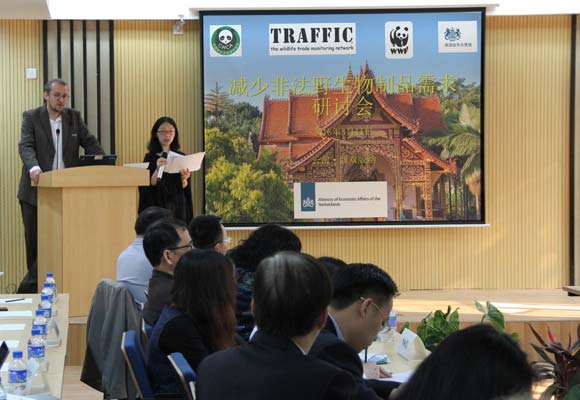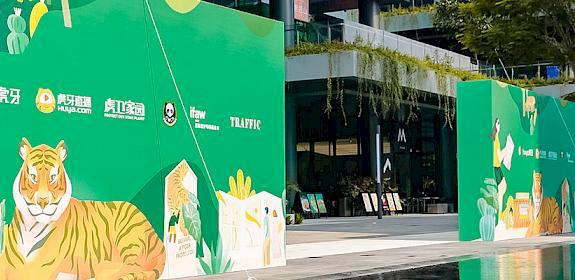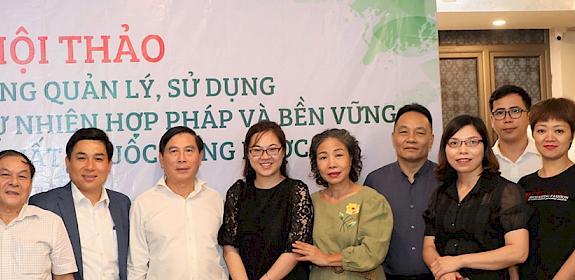Reducing demand for illegal wildlife products and embracing the forthcoming ivory ban
Xishuangbanna, China, March 2016—Last week a workshop on reducing demand for illegal wildlife products was jointly convened by the China Wildlife Conservation Association (CWCA), the British Embassy to China and TRAFFIC in Xishuangbanna Tropical Botanic Gardens.

Representatives from China’s Convention on International Trade in Endangered Species of Wild Fauna and Flora Management Authority (CITES MA), the Ministry of Agriculture, Ministry of Public Security and local enforcement agencies including China Customs, State Forestry Administration, Forestry Police, General Administration of Quality Supervision, Inspection & Quarantine, China Association of UN, forestry universities, Tencent and other companies, totaling around 50 people attended.
China has experienced a number of significant developments relating to ivory trade in the past year, including the one-year ban on import of African ivory carvings, as well as a joint China and US commitment to enact a near complete ban on the import and export of ivory. These measures will influence trade and consumption of both legal and illegal ivory in China. The anticipated ban will also impact demand for ivory.
Zhang Shanning, Director of Enforcement Division, Chinese CITES MA, spoke about the Chinese authorities’ preparative work for realizing President Xi Jinping’s ivory ban commitment.
He said: “Chinese authorities are adopting various ways to implement the ivory trade ban. A specific timeline has not been published but it is understood to be taking place within the lifetime of this administration,” adding “The ivory ban is a joint commitment by China and the US, we shall move forward simultaneously and witness each other’s implementation steps.”
The workshop aimed to identify ways to deal with emerging trends and challenges on the demand for ivory and other wildlife products potentially brought about by the future ban. For example, how to strengthen control of illegal wildlife trade and legal deterrence to curb the market and change purchasing behaviour accordingly.
The current situation regarding the legal ivory market was evaluated during the workshop. Some experts noted that effective governance and control in source countries can also significantly reduce consumption in end user markets. Outcomes from last week’s Demand Reduction workshop convened by TRAFFIC in Hong Kong were shared and discussed with delegates.
“TRAFFIC works globally to reduce illegal wildlife trade: this challenge needs to be addressed from both ends of the trade chain, from work on sustainable livelihoods for local communities in source countries to demand reduction efforts in consumption markets,” said Dr Yannick Kuehl, Regional Director for TRAFFIC in East & South Asia.
“That is why TRAFFIC welcomes such pertinent dialogue and discussions among Chinese government departments, enforcement agencies, related institutions and businesses to source better solutions to fight wildlife trafficking.”
Just prior to the workshop, 30 leading tourism companies committed to refusing illegal wildlife products under a joint initiative between TRAFFIC, the National Tourism Authority and CITES MA in China. The move will offer opportunities for new partnerships and targeted messaging of the tourism sector.
Notes:
The demand reduction workshop in Xishuangbanna was generously supported by the Ministry of Economic Affairs of the Netherlands.



